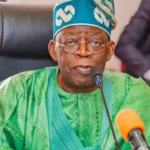
Ms. Razia Khan, Managing Director, Chief Economist, Africa Global Research at Standard Chartered Bank Plc, London, on Tuesday urged members of the Central Bank of Nigeria’s Monetary Policy Committee (MPC) to maintain the benchmark Monetary Policy Rate (MPC) at 14% to the end the year, despite the year-on-year decline in inflation rate.
Khan, who was reacting to the decision of the MPC to also retain Cash Reserve Ratio to 22.5%; Liquidity Ratio at 30%; and the Asymmetric corridor at +200 and -500 basis points around the MPR, the decision which did not come as a surprise is necessary to support the nascent NAFEX FX regime.
This, she continued, is especially with the plan by the Organisation of Petroleum Exporting Countries (OPEC) to cap Nigeria’s oil output at 1.8m barrels per day.
Stabilisation of the economy, she continued, “will require ongoing confidence in the availability of FX. Given external pressure, the only way to achieve this will be for a modest real tightening of the policy stance.”
The MPC commentary, she continued, “still suggests that this might be substantially due to a base effect, which may not be long-lasting. The MPC expects a moderation in that base effect come August, but this may be offset by the positive impact of the harvest in Q3, and some deceleration in food price inflation.”
The MPC statement, Khan added, is an indication that “the rhetoric around the economic recovery has changed very subtly. It is no longer seen as something that might happen on auto-pilot. Risks to the 2017 recovery are seen to be more substantial. There are ongoing concerns about the weakness of financial intermediation. Fiscal stimulus is viewed by the MPC to be relatively untargeted. There are concerns about the scale of the FG deficit. Recovery will not be without its risks.
The unanimous decision to ‘hold,’ as shown by the six to two vote in favour of maintaining the current monetary policy stance, is also an indication that “debate on the MPC is growing, with at least two members seeing room for more accommodative policy.
“Given the policy choices open to the CBN, reaffirming its commitment to macroeconomic stability is the most pro-growth intervention that the CBN can make. The issues in Nigeria’s financial system and real economy have been well-flagged.
“There is no basis for the belief that easier monetary policy from the CBN will somehow have a meaningful effect on debt service costs (the loss of credibility might even raise the risk premia on Nigerian debt, driving higher interest rates over time). Nor will easing now do much to lift private sector credit growth, when there are bank-specific issues that must be dealt with,” she said, expressing support for the decision by the MPC to “avoid the temptation to ease policy prematurely.”















